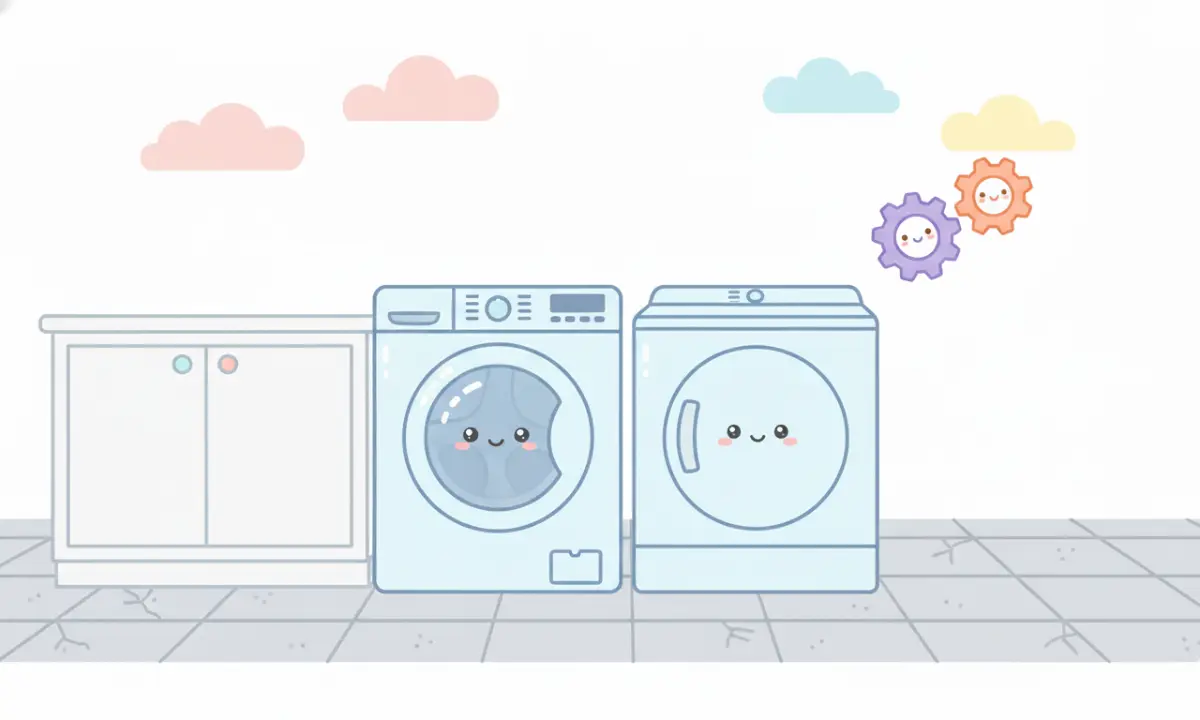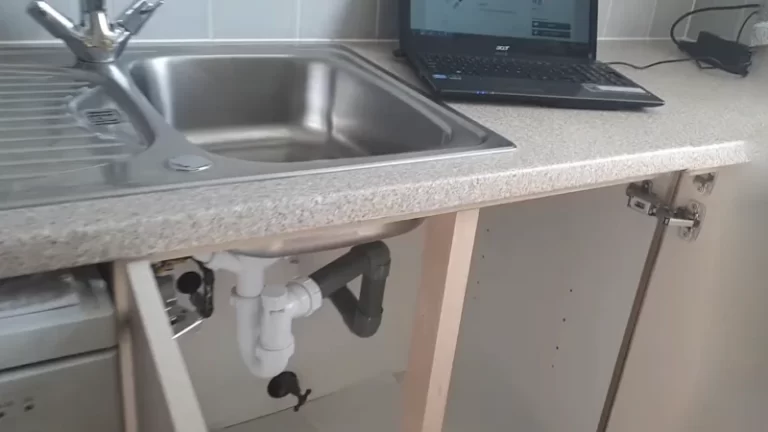Who to Call to Move a Washer & Dryer? The PROs You Need
Moving a washer and dryer seems straightforward until you face the tangle of hoses, vents, and specialized power cords. One wrong move can lead to a flooded laundry room, a fried electrical circuit, or even a dangerous gas leak. The confusion over who to call for the job is a major source of stress for many homeowners.
Is this a job for a standard moving company? Do you need a plumber? What about an electrician? The right answer depends entirely on where and how you’re moving your appliances.
This guide eliminates the guesswork. We’ll break down the exact professionals you need to contact for every scenario, ensuring your washer and dryer are moved safely, correctly, and without costly surprises.
You'll Learn About
Why Moving Your Washer and Dryer Isn’t a Simple DIY Job
Underestimating the complexity of moving a laundry pair is a common and costly mistake. These aren’t simple pieces of furniture; they are heavy, complex machines integrated directly into your home’s most critical systems.
The sheer weight and bulk of a washer and dryer make them difficult to maneuver, creating a high risk of scratching floors, denting walls, or causing personal injury. Beyond the physical challenge, the technical connections are where the real dangers lie.
You have to manage water supply lines, a drain hose, a dryer vent, and a high-voltage electrical connection or a natural gas line. A single faulty connection can lead to disaster, turning a simple move into a major home repair project.
The Core Professionals: Identifying Who to Call and When
Your specific moving situation dictates which expert you need to hire. A simple swap within the same room is vastly different from relocating your laundry to a new floor. Here’s how to determine the right pro for your project.
Scenario 1: Simple Relocation to an Existing Hookup
This is the most straightforward scenario. You’re either moving the appliances within the same laundry room or to another spot in the house that already has all the necessary connections (water, drain, vent, and power).
In this case, your primary contact should be an appliance technician or a professional mover with appliance experience. These experts have the right equipment, like appliance dollies, to move the heavy units without damaging your home. They will properly disconnect the machines, secure the washer drum with shipping bolts if necessary, move them, and expertly reconnect everything at the new location.
Scenario 2: Moving to a New Location Without Hookups
This is a small-scale renovation project that requires a coordinated team of licensed tradespeople. If you’re moving your laundry to a closet, garage, or a different floor, you cannot simply hire a mover. You must first have the new space fully prepared.
First, you must call a licensed plumber. The plumber will run new hot and cold water supply lines and install a proper drainage solution, such as a standpipe connected to your home’s waste system. This is the foundational work for any new laundry area.
Next, you will need a licensed electrician. Electric dryers require a dedicated 240-volt circuit and outlet, which is a job that must be done by a qualified professional to prevent fire hazards. The electrician will also install the standard 120-volt outlet for the washing machine, ensuring the new circuit is safe and up to code.
If you have a gas dryer, you must hire a licensed gas fitter (often a plumber with a specific gas license). They will safely run a new gas line, install the necessary shut-off valves, and perform a leak test to ensure the connection is secure. Due to the risk of explosion and carbon monoxide poisoning, this is never a DIY job.
Finally, for the dryer vent, you may need an HVAC technician or a skilled handyman. They will need to cut a precise hole through your home’s exterior wall to run the new ductwork. This is a crucial step detailed in projects like moving your washer and dryer to the other side of the wall, as improper venting is a leading cause of house fires.
Scenario 3: Long-Distance or Whole-House Moves
When moving to a new home, your best option is typically a full-service moving company. However, you must clarify the exact services they provide. Some companies will handle the full disconnection and reconnection, while others only transport the appliances.
Always ask a moving company if their team is trained to properly service appliances. This includes installing shipping bolts to protect the washer drum and ensuring all lines are securely capped. If they don’t offer this service, you may need to hire a local appliance technician at both your old and new homes to handle the prep and final installation.
Quick Reference: Who to Call for Your Laundry Move
Navigating the different trades can be confusing. This table breaks down the essential tasks and the primary professional you should call to get the job done right.
| Task | Primary Professional to Call | Key Considerations |
|---|---|---|
| Disconnecting, Moving, & Reconnecting (Existing Hookups) | Appliance Technician or Experienced Mover | Ensure they are insured and have proper equipment. |
| Installing New Water and Drain Lines | Licensed Plumber | Must be done to code to prevent leaks and drainage issues. |
| Installing a 240V Electric Dryer Outlet | Licensed Electrician | Non-negotiable for safety and home insurance compliance. |
| Installing a New Gas Line for a Dryer | Licensed Gas Fitter / Plumber | Critical for preventing dangerous gas leaks. Requires a permit. |
| Creating a New Dryer Vent Through a Wall | HVAC Technician or General Contractor | Proper slope and sealing are essential for efficiency and safety. |
| Complex Relocation (e.g., a new laundry room) | General Contractor | They will manage all the trades (plumber, electrician, etc.). |
The “All-in-One” Solution: When to Hire a General Contractor
If your project involves more than just setting up hookups—for instance, building a closet or a small room for your new laundry area—a general contractor is your best choice. The contractor acts as the project manager, coordinating all the licensed plumbers, electricians, and finishers needed to complete the job.
For simpler installations, a highly skilled and versatile handyman may seem like a cost-effective option. However, it is absolutely critical to understand that most states require a licensed professional for any plumbing, electrical, or gas work. Adhering to building codes is not just about following rules; it’s about ensuring your family’s safety and the legal compliance of your home, much like understanding the strict legal requirements for a bedroom in Illinois.

Critical Questions to Ask Before You Hire Anyone
Before allowing any work to begin, protect yourself by asking a few essential questions. The answers will reveal the professionalism and reliability of the person you’re considering hiring.
Always start by asking: “Are you licensed and insured for this specific type of work?” This is the most important question. Insurance protects you from liability in case of accidents or damage to your property.
Follow up with questions about their experience, such as “Do you specialize in appliance installation?” and “Can you provide a detailed, itemized quote?” Finally, ask for their warranty or guarantee on the work performed. A confident professional will always stand behind their service.
The Hidden Factors Most Homeowners Forget
Beyond finding the right professional, several overlooked details can impact the success and cost of your project. Thinking about these issues ahead of time can save you significant headaches.
One of the most important is the potential need for municipal permits. Significant electrical and plumbing modifications often require a permit and a subsequent inspection to ensure the work is done to code. A qualified professional will know the local requirements and handle the permitting process for you.
You also need to consider your home’s existing infrastructure. An older electrical panel may not have the capacity for a new 240-volt circuit, requiring an expensive panel upgrade. Similarly, adding a new drain line could tax an older plumbing system, so an assessment by a professional plumber is wise.
Finally, insist on high-quality materials. For example, steel-braided water hoses are far superior to standard rubber hoses and provide crucial protection against bursting and flooding. The principles of using quality components are universal, whether you’re working on a dishwasher with top controls installation or a laundry hookup.
Your Final Decision: A Step-by-Step Guide
Feeling overwhelmed? Don’t be. Follow this simple, step-by-step process to make the right choice with confidence.
First, assess your move. Are you simply moving the appliances to a pre-existing hookup, or are you creating a new laundry space from scratch? Your answer is the key that unlocks the rest of the process.
Next, based on your assessment, identify the required trades. Use the guide and table above to determine if you need an appliance tech, a plumber, an electrician, a gas fitter, or a combination of several pros.
Once you know who you need, get multiple quotes. Contact at least three different qualified professionals for each trade to compare pricing, availability, and their proposed plan. This is also your chance to ask those critical questions about licensing and insurance.
Before any work starts, verify their credentials. A quick online search or a call to the local licensing board can confirm their status. A true professional will be happy to provide their license number.
Conclusion: Don’t Risk It—Call the Right Pro for Peace of Mind
While the allure of a quick DIY move or hiring a cheap, unqualified helper can be strong, the risks are simply too high. A washer and dryer move done improperly can lead to thousands of dollars in water damage, serious electrical hazards, or dangerous gas leaks.
By investing in the right licensed and insured professional, you are not just paying for a service. You are buying the peace of mind that comes from knowing the job was done correctly, safely, and in a way that protects your home and your family.

